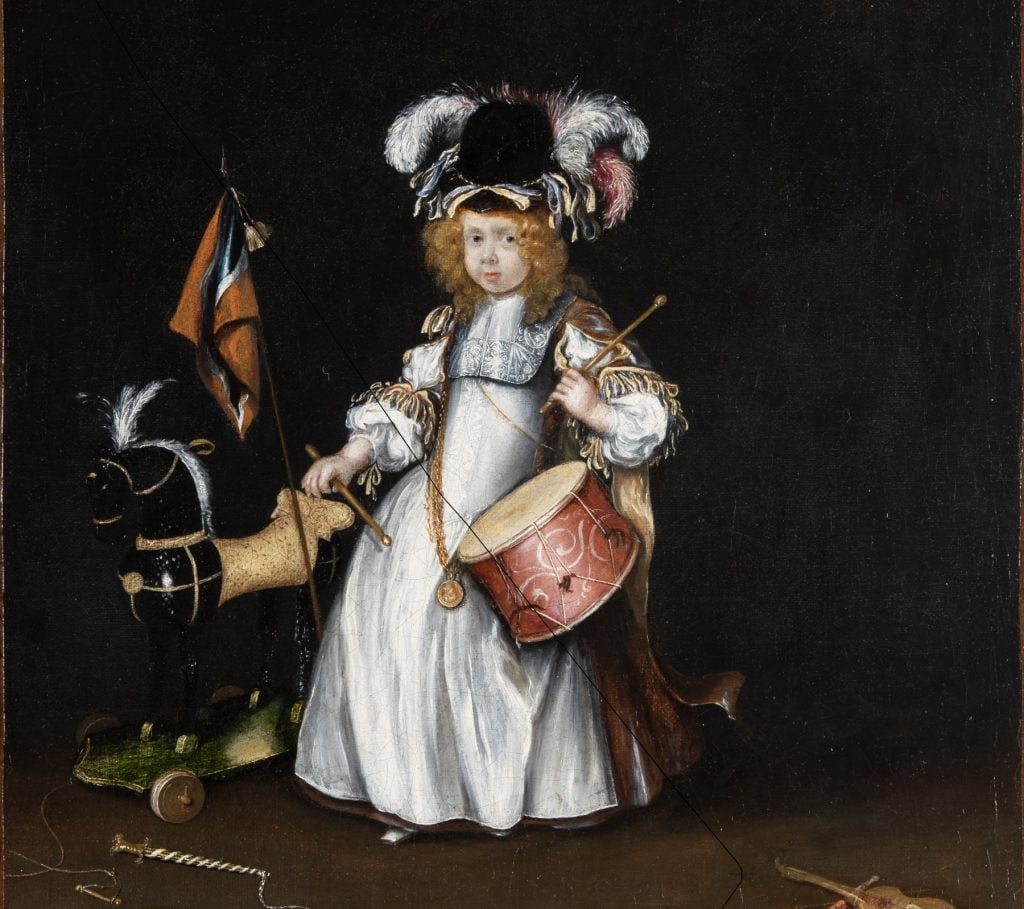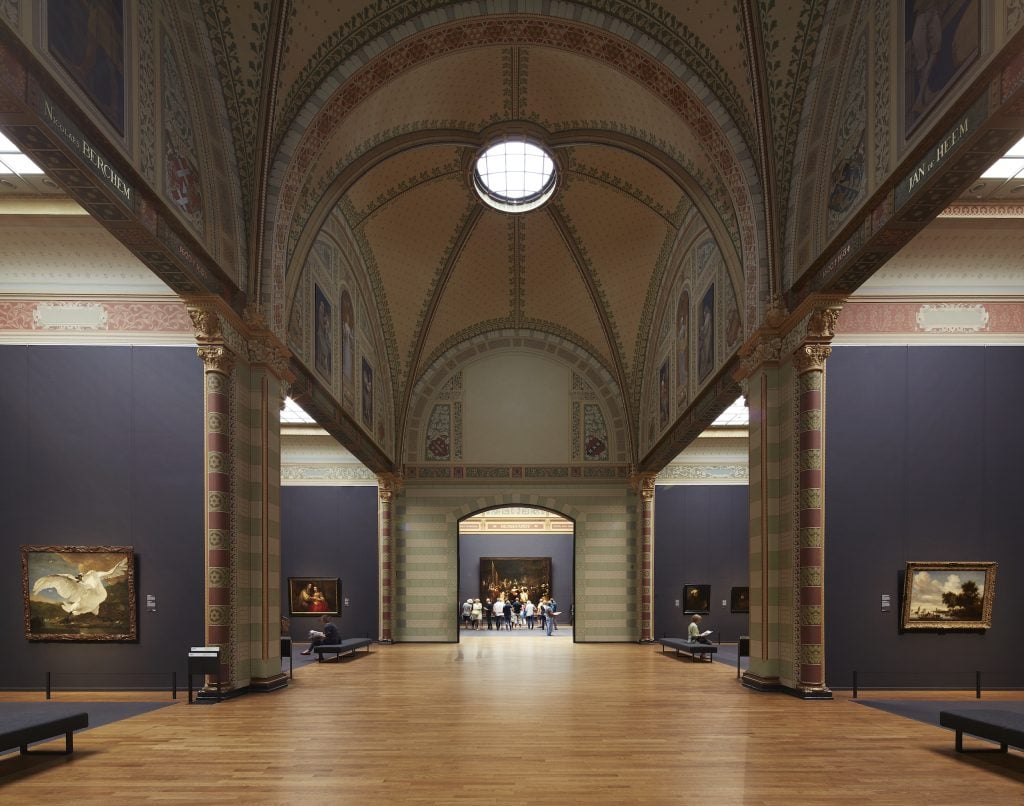Art Fairs
Previously Unknown Painting by Dutch Artist Gesina ter Borch Acquired by Rijksmuseum
Scooped up at TEFAF, this exceptionally rare painting will be reunited with the artist's drawings and watercolors.

Scooped up at TEFAF, this exceptionally rare painting will be reunited with the artist's drawings and watercolors.

Jo Lawson-Tancred

The only known painting to have been completed solely by the 17th century Dutch artist Gesina ter Borch has just sold to the Rijksmuseum for €3 million ($3.3 million). It was acquired from Zebregs & Röell Fine Art and Antiques, thanks to help from the Women of the Rijksmuseum Fund and will now join a larger collection of 59 drawings and three albums of watercolor drawings by ter Borch that has been in the Rijksmuseum’s collection since 1886.
The work, which is signed by ter Borch, was discovered in an unnamed antiques dealership in France by gallerist Dickie Zebregs. It is a posthumous portrait of the artist’s beloved younger brother by 15 years, depicted as an infant in a feathered hat and surrounded by toys. Having joined the Dutch Navy at the age of 19, Moses died in 1667 during the the Second Anglo-Dutch War. The painting bears the false date of 1647, as though it had been painted when Moses was just two years old.
Ter Borch, who spent her life in the Dutch city of Zwolle, was born 1631 to the Dutch Golden Age artist Gerard ter Borch the Elder and his third wife. She followed in the footsteps of her father and half-brother Gerard by learning to draw and paint, predominantly in watercolor. It was not known until now that an uncontested oil painting by the artist had survived.

The Gallery of Honor in the Rijksmuseum, Amsterdan. Photo: Erik Smits.
It is thanks to the artist’s careful archiving of her family’s own output that many of these works were perfectly preserved and could be purchased as a group by the Dutch state and transferred to the Rijksmuseum in the late 19th century. Since 2021, ter Borch was been one of only three woman artists in the Rijksmuseum’s vaunted “Gallery of Honor.”
“This crowning achievement in her artistic legacy also offers an intimate glimpse into her personal life,” said the Rijksmuseum’s director Taco Dibbits in a press statement. “The pain of loss and the importance of joy-filled memories are universal, and still palpable in this 350-year-old painting.”